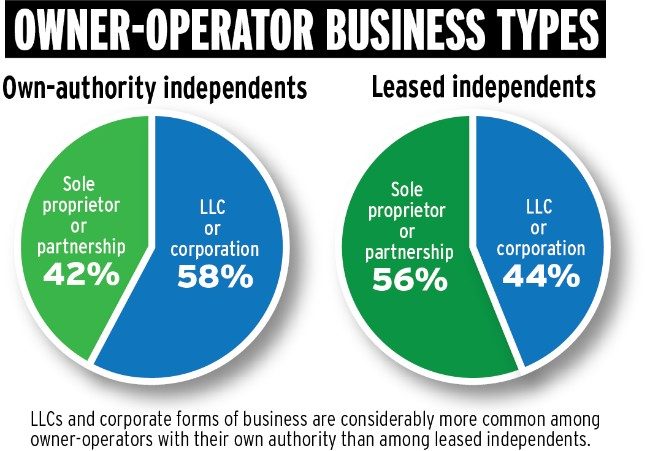The Harsh Realities of Trucking as an Owner-Operator
The Lies and Deception of the Industry
As a two decade veteran of trucking with over 2.5 million miles under my belt, I have seen it all when it comes to the deceptive practices of this corrupt industry. Shippers and fleet companies will tell owner-operators endless lies just to get them through the door. They promise earnings that are nearly 30% higher than what can realistically be achieved. New drivers are brainwashed into thinking being away from home for 6 months with only 3-4 days off is acceptable. The reality is drivers will earn far less and work far more hours than initially promised once they start hauling loads.

An Uphill Battle for Solopreneurs
Starting your own trucking business as a solopreneur trucking company is an extremely difficult path. Consider it like getting a college education with no curriculum - other owner-operators are hesitant to provide advice as you will become their competition. To actually make good money, you will need a minimum of 3-4 trucks running under your authority which requires a huge capital investment that many simply can’t afford. Unless you have the funds to build a fleet, your best option is driving as an owner-operator, but it comes with its own challenges.
The High Costs of Being an Owner-Operator
Owner-operators have to shoulder the immense financial burdens that fleets avoid. You are responsible for buying your truck and maintaining payments even through slow months with little work. Keeping your rig roadworthy is a constant battle against unexpected and expensive repairs. Time spent waiting to load or unload is still unpaid non-driving hours. If you lease onto a larger carrier, their fees and commissions eat into your earnings. Adding in fuels surcharges, taxes, permits, and maintenance like truck washing, the costs really pile up.
Choosing the Right Load Type
For solo owner-operators just getting started, it’s important to select the right freight category. The competition for dry van loads is intense with too many inexperienced drivers entering and leaving the market frequently. Reefer loads tend to pay better and have more stable demand. Refrigerated trucking can provide a leg up for new drivers. Those with flatbed experience have the most earning potential as loads typically go farther and pay higher rates. The irregular cargo also allows for more flexible home time compared to van or reefer operations. Targeting specialized niche freight can help solopreneurs stand out.
Hauling for the Big Produce Companies
Major produce distributors provide one viable path for produce hauling owner-operators. However, their extensive fees and commission deductions severely cut into drivers’ take-home pay. As chronicled in The Secret Life of Groceries, agriculture giants effectively control many small-business truckers by financial domination through debts accrued. Stories like Lynne’s profile a depressing reality - drivers are at the mercy of carriers’ payment policies despite long hours of grueling work. The lifestyle sacrifices and unreliable income are a tough sell for those without realistic expectations.
Pros and Cons of Driving as an Employee
Alternatively, driving as an employee under a larger company can offer more stability and predictable wages. Some choose this route for the guaranteed salaries and benefits. Employee-owned fleets providing bonuses and profit-sharing allow workers to build real wealth over time in retirement plans. However, drivers trade away business independence and control over their schedules for that security. Being beholden to a dispatch board denies the flexibility of deciding loads and routes that owners enjoy. The tradeoffs must be weighed for each individual situation.
Experienced Advice from Seasoned Veterans
The most insightful guidance comes from talking directly to solicitorpreneurs who have been on the road as owner-operators for many years. Ask them pointed questions about real earnings on average annually versus startup hype. Inquire if the lifestyle sacrifices of long periods away from family are worth it financially in the long-run. Seek their candid assessments of various freight types handled and carriers worked with. Seasoned drivers offer the clearest-eyed view of contemporary trucking realities versus idealized promotions. Their measured recommendations can help manage expectations entering this complex field.
My Perspective as a Successful Owner-Operator
Having driven commercially for over a decade before purchasing my truck, I understood the challenges of solo trucking but also saw the opportunities. By specializing in flatbed freight hauling regionally instead of chasing van loads across the country, I’ve built a sustainable small business with flexibility. Accepting that ups and downs are inevitable helped weather lean seasons. Communicating openly with carriers about loads and pay ensured fair treatment. While long-haul miles bring higher volumes, short-distance regional freight allows more time at home. Balancing priorities is key. With the right preparation and business approach, trucking independence can be financially rewarding for determined drivers willing to deal with uncertainty. But it certainly isn’t a get-rich-quick venture as often advertised. Only those with realistic expectations will find long term success in this field.
